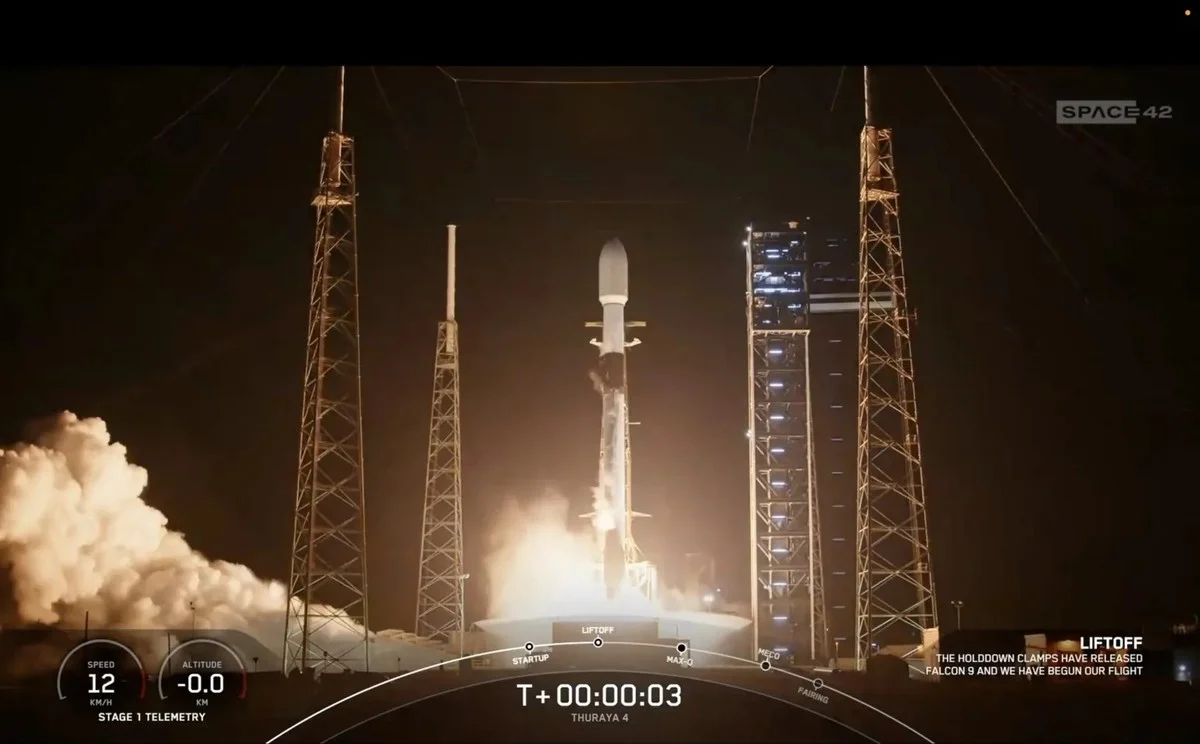05/01/2025
05/01/2025

TAMPA, Fla., Jan 5: SpaceX successfully launched the Thuraya-4 satellite on January 3, marking the first Falcon 9 mission of 2025. The satellite was sent into a geostationary transfer orbit following its lift-off at 8:27 p.m. Eastern Time from Cape Canaveral Space Force Station in Florida.
The Thuraya-4 satellite, designed on the Airbus Eurostar Neo Platform, is fully electric and equipped with a 12-meter L-band antenna. It will provide narrowband connectivity for mobile devices across regions including Europe, Africa, Central Asia, and the Middle East.
The satellite was ordered by Yahsat, a UAE-based satellite operator that merged with artificial intelligence provider Bayanat in October to form Space42. The launch of Thuraya-4 aims to replace two aging Boeing-built satellites in geostationary orbit (GEO). A contract for the satellite also included an option for a second spacecraft to replace mobile satellite services in Asia, but this option has not yet been exercised.
Originally scheduled for launch in 2023, the Thuraya-4 mission was delayed due to scheduling and cost issues faced by Airbus. The satellite was then lined up for a December launch but faced further delays. SpaceX closed out 2024 with a total of 134 Falcon 9 and Falcon Heavy launches, surpassing its 2023 total of 96 missions, and leading global space launches.
Looking ahead, Gwynne Shotwell, SpaceX’s president and COO, has stated the company is targeting 175 to 180 launches for 2025.
Ali Al Hashemi, CEO of Space42’s Yahsat Space Services division, stated that the launch of Thuraya-4 will enable the company to "unlock innovative AI-powered services for our global client base." While specific details were not provided, Space42 has emphasized its focus on hybrid connectivity and geospatial services, particularly for emerging markets such as autonomous vehicles.
Additionally, Space42 operates broadband and TV broadcast services through three separate satellites in GEO. Airbus is currently building two more satellites, Al Yah-4 and Al Yah-5, which SpaceX is scheduled to launch in 2027 and 2028. The company has also placed an order with Airbus for two low Earth orbit spacecraft, as part of its evolving multi-orbit strategy, though little has been revealed about the specifics of this future initiative.


